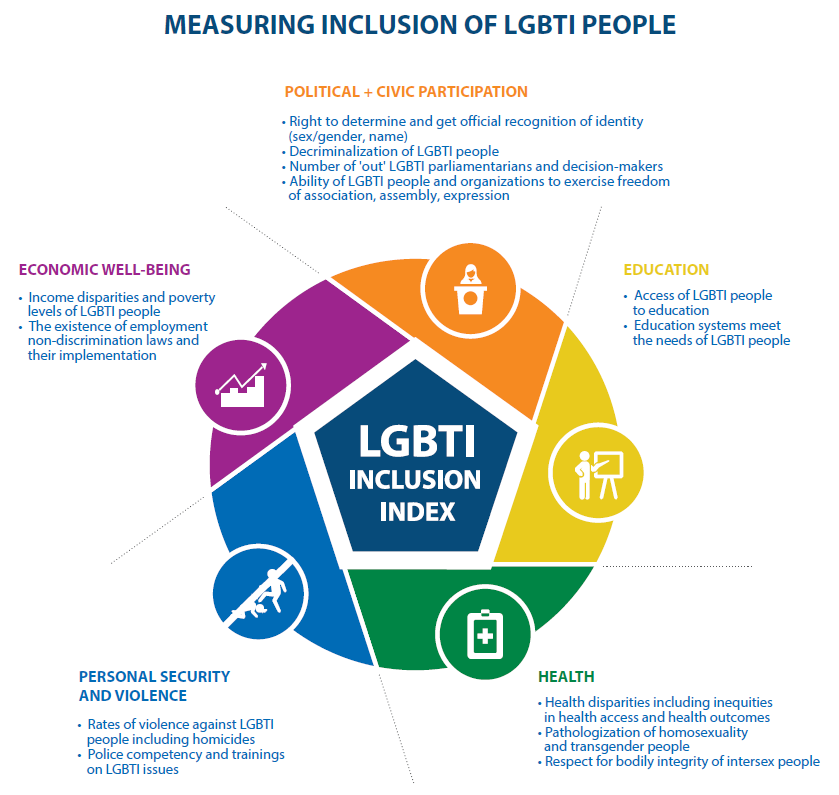Why invest in LGBTI research?
- There is a huge gap in research and data on LGBTI people worldwide, hindering the progress toward inclusion and the SDGs.
- Currently, only a tiny share—5 percent—of the limited global funding for LGBTI issues goes to support research.
- With robust data on LGBTI people, aid agencies, international foundations, and human rights organizations can work more effectively to enhance the well-being of LGBTI persons, especially for the poor and vulnerable.
- More investment in strategic LGBTI research can help inform policies and advance the inclusion of LGBTI people in national and global efforts.
Recommendations for strategic investment
- Invest in capacities and partnerships between governments, LGBTI civil society groups, academics, multilateral institutions, the private sector, and other stakeholders to create an infrastructure for LGBTI data collection and research.
- Invest operationalizing the UNDP-led LGBTI Inclusion Index to undertake the targeted research required for each of the priorities of the LGBTI Inclusion Index: health, economic well-being, personal security and violence, education, and political and civic participation.
- Invest in existing and new research priorities identified by LGBTI civil society groups, whether related to local, national, regional, or global issues.
Research priorities
- Health: heath disparities involving inequalities in health access and health outcomes; stigmatization of homosexuality and transgender people’s health status; lack of respect for bodily integrity of intersex people
- Economic well-being: income disparities and poverty levels of LGBTI people; the existence of employment and nondiscrimination laws and their implementation
- Personal security and violence: rates of violence against LGBTI people including homicides; police competency and training
- Education: access of LGBTI people to education and whether education systems meet their needs
- Political and civic participation: right to determine and get official recognition of identity; decriminalization of LGBTI people; number of “out” LGBTI parliamentarians and decision makers; ability of LGBTI people and organizations to exercise freedom of association, assembly, and expression

